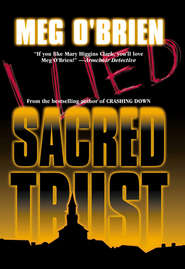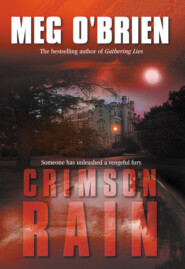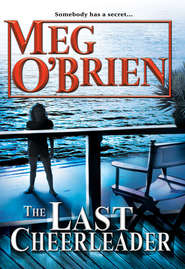По всем вопросам обращайтесь на: info@litportal.ru
(©) 2003-2025.
✖
Gathering Lies
Автор
Год написания книги
2018
Настройки чтения
Размер шрифта
Высота строк
Поля
It should have gone down that way. And would have gone down that way, if I’d just lain low with the evidence. But then I blew it.
The next night after work, I met with a friend, J.P. Blakely, at her office. J.P. was a Private Investigator who had helped me on several cases. I told her everything about Lonnie Mae and the cops. After talking about it for an hour or more, and considering how to proceed, both J.P. and I needed a drink. We headed for McCoy’s, which was a cop hangout, and not a place we’d ordinarily frequent. It was the nearest watering hole, though, and we ran across the street from J.P.’s office in a blinding rain.
The place was nearly empty, but while we were sitting at a table out of sight of the bar, four of the five cops who had raped Lonnie Mae piled in. I knew who they were by this time, because their photos had been emblazoned across the front page of that day’s Seattle Times. A complaint had been filed against them for rape, the caption read. The following story said the cops had issued a statement to the press denying all guilt and claiming that the prostitute in question had been out to get revenge for her arrest.
I felt a small sense of satisfaction that I’d been the one to leak the story to the Times in the first place. At least it was out in the open now. One step forward—and maybe, I thought, it would get Ivy off her ass. The papers had dubbed the cops the “Seattle Five,” and the rest of the media had begun to follow suit. The scandal would take on a life of its own. It would not simply “blow over.”
The four cops who had just come into McCoy’s didn’t see us, and we had an opportunity to eavesdrop. At first, they were relatively silent—gearing down from their day’s work, it seemed. Then, as the drinks flowed, they became louder and louder. There was much backslapping, and I heard Mike Murty, the suspected head honcho of the Five, brag that there probably wouldn’t even be a trial, now that the “black bitch whore” was dead.
They continued in that vein, while J.P. and I stared at each other, growing more and more outraged. Though we didn’t hear it in so many words, there came a moment when we were both certain the Five had set that fire and murdered Lonnie Mae—not to mention the others who had died along with her.
It was then that we rose as one and strode around the divider that separated us from the bar. The bartender saw us coming, and moved away as if sensing trouble. There were no other patrons in McCoy’s at that time, and maybe it should have occurred to me to be afraid. But I wasn’t accustomed to drinking much, and I’d had two glasses of wine.
I grabbed Mike Murty by the arm and swung him around. “You son of a bitch!” I said. “You sick, worthless piece of crap!”
He slid off the stool and hovered over me, all six feet of him. With his thumbs in his belt and his feet planted wide, he laughed. The other three stood, too, surrounding Murty and me.
“Move along, little lady,” one of them said. It was Al Garben, a weasily guy with a mustache that didn’t quite hide a mean mouth.
J.P. pushed her way between them and me. Though she was only five-four, she stood toe to toe with them, her blue eyes blazing. “She’s right. You always have been sick bastards.”
Jake Suder laughed. “You got a problem with us, J.P.?” He stuck out a hand that was reddish and cracked, chucking J.P. under the chin. She knocked it away—but not before I remembered Lonnie Mae telling me about that hand, and the things it had done to her.
“Enjoy your drinks,” I said angrily. “There won’t be any where you’re going.”
Murty laughed again. “We’re not going anywhere, bitch. Unless, of course, you’re inviting us to your place?”
They all laughed, stepping forward and closing in on us. “That’s right,” Al said. “Maybe we’ll just stop by one of these nights. You know—a routine check, to see if you’re all right.”
Tad Sanders, the youngest one, grinned. “Maybe we’ll find that she’s more than all right. Maybe we’ll find that she’s real, real good.”
He leaned so close, I could smell the beer on his breath and see the peach fuzz on his chin. Not much more than twenty-two, he already had the look in his eyes of a predator.
J.P. put a palm against his chest, like a crossing guard. “Get back, asshole. All of you get back.”
“You think you scare anybody?” Al Garben taunted. “Little yellow-haired thing like you?”
“You’d better be scared,” I said, not even thinking as words tumbled from my wine-loosened tongue. “I have enough evidence to put every one of you away for good.”
“You’ve got evidence, bitch?” Murty laughed. “Not by a long shot.”
“Believe it,” I said. “Lonnie Mae gave me all I needed before she died. And you’re not getting away with it—not the rape, or her murder.”
J.P. flashed me a warning. I saw it in her eyes, just before I saw the threat in Mike Murty’s. J.P. grabbed my arm and pulled me away.
“Let’s get out of here,” she said. “C’mon, Sarah. You’ve had too much to drink. Let’s go.”
“You’re right,” I agreed, slurring the words a bit. “I don’t know what the hell I’m talking about. Anyway, I need a shower, to wash the filth away.”
We had to get our coats, and when we rounded the room divider again to go out the front door, I saw that the Five were having a serious conclave at the bar. They weren’t laughing anymore.
I should have felt a small sense of victory. But even without J.P.’s warning, I knew I’d said far too much.
Late that night, I tried to throw a net of protection around myself by calling Mike Murty at home. I told him I did, in fact, have evidence that he and the others had raped Lonnie Mae. I said the evidence was safe with someone unknown to him, and that if anything happened to me, it would go directly to someone in authority outside the Seattle PD. I told him that agency would nail them for the rape, Lonnie’s murder, and my death, as well. Then I closed with the argument that the Five’s best chance was to throw themselves on the mercy of the court—and that they’d better make sure I stayed alive to see them there.
I thought this would stop them. At the very least, I hoped it might buy me some time.
But that’s when the Seattle Five came after me.
Let me be clear. Most Seattle cops are good people, doing jobs they love and are proud of. Early in my career as a public defender, however, I’d acquired a reputation with even the good ones. To put as nice a slant as possible on it, they loathed me. I was the one who got people off after the cops worked their asses off tracking them down, taking them in, filling out paperwork, testifying in court. I didn’t mind their griping about me. It got me on the nightly news, and if that could in some way help a client, I was all for it. I dressed in snappy clothes for court, and to draw even more attention, I deliberately wore my thick blond hair in a loose, flowing style I was told was sexy.
Actually, Ian’s the one who told me my hair was sexy, even to the point of using it in our foreplay. One Fourth of July night we lay naked on my bed, I and Seattle’s top-ranking police detective, and watched the Space Needle fireworks from my window. Almost absentmindedly, Ian stroked my hair against himself, over and over till he was fully aroused, reaching climax just as the final burst of fireworks spilled from Seattle’s best-known phallic symbol. I recall getting into the spirit of things, though I never told him, during or after, how uncomfortable the position had been. In those days I’d have done anything for Ian, put myself in discomfort, even danger. I loved him with nearly my entire heart, leaving no room for anything else but the law.
Ironically, it was the law that came between us. Ian was a dedicated Seattle cop who spent long days putting evidence together to bring my clients into court. He had a hard time accepting that I had a job to do, and that I took pride in doing it.
It didn’t help matters that some of the accused I managed to get off weren’t innocent. That’s the thing about DNA—it can be used, if one knows how to present it in court, to free the guilty as well. And a lawyer’s job is to defend her client, innocent or not.
Law, I learned, has a way of wearing one’s purity down.
So Ian and I would argue about my work, and at first it was fun—something we did as part of foreplay, to get us excited. Later, it became something I dreaded.
“If the jury doesn’t understand DNA when the prosecutor rams it down their throats, over and over for hours till they become benumbed, it’s not my fault!” I’d argue, my voice shaking because I wanted more than anything to get the argument over with and get back to where we were “one.”
“You keep it going!” he would shout back. “You know exactly what you’re doing, and if the jury gets bored and doesn’t even listen, it’s your fault, not the prosecutor’s. You plan it that way. You weave a damned spell in the courtroom, and no one can see beyond it.”
He once went so far as to say that if I loved him, I would go do something else for a living—like mow lawns.
I couldn’t believe he was serious, and perhaps he was not. Ian, a linebacker type with red hair and an Irish temper, had a way of flying off the handle and saying things he didn’t mean. Later, he’d apologize, and things would go back to the way they had been. Until next time.
One night last January, however—two nights after I’d called Mike Murty and threatened him with Lonnie Mae’s evidence—Ian didn’t show for dinner. When I finally reached him late that night, he said he’d been busy. He didn’t know when he’d have time to see me again.
The next day, three uniform cops raided my apartment while I was out. A judge I barely knew had given them a warrant based on a flimsy tip the cops said they had received. They “found” crack cocaine and miscellaneous drug paraphernalia in my bedroom closet.
I do not use drugs, and never have.
I was arrested coming out of a courtroom, a moment I’ll never forget if I live to be older than sin. The charge was possession of illegal drugs with intent to sell, a felony, and after the usual delays and continuances, I didn’t expect my trial to go forward until early December. I walked through all these procedures like a zombie, in fear and disbelief.
The next day I made bail but lost my job, and for a brief time I fell into a depression. My only comfort was that they hadn’t found Lonnie Mae’s evidence when they planted those drugs. I’d taken it from my trunk, after we left McCoy’s, and had given it to J.P. to put in a safe place.
I was too afraid now, though, to hand it over to anyone—even Ivy O’Day. It was the DA’s office, after all, that had pressed charges against me. Had Ivy told someone about my visit to her? The wrong someone? Had the cops, in fact, been searching for the evidence at the same time they planted those drugs?
Depression mingled with fear. Then, one day I woke up angry. From that morning on, my days were consumed with thoughts of how best to destroy the Seattle Five.
The next day, I walked over to Seattle Mystery Bookshop. Between talking with Bill Farley and looking through volumes on the shelves, I formulated a plan to write a book blasting the justice system in general, and crooked police in particular. Bill was all for it.
“It’s a bestseller in the making,” he told me, his white hair gleaming under the store’s light. “Especially with you being a lawyer. It’ll put you on talk shows, maybe even Larry King Live. You can get your story out that way.”
I wanted my story out, not just for myself, but for Lonnie Mae Brown. I still hadn’t heard from Ivy O’Day, and no charges had been filed against the Seattle Five. Lonnie Mae’s stockings remained in their plastic bag in a safe in the office of J.P.’s accountant, where she’d put them the night I handed them to her. After the confrontation with the Five in McCoy’s, she was afraid they’d search her office, and she hid the stockings in a brown envelope with old tax forms she gave to her accountant for storage.









